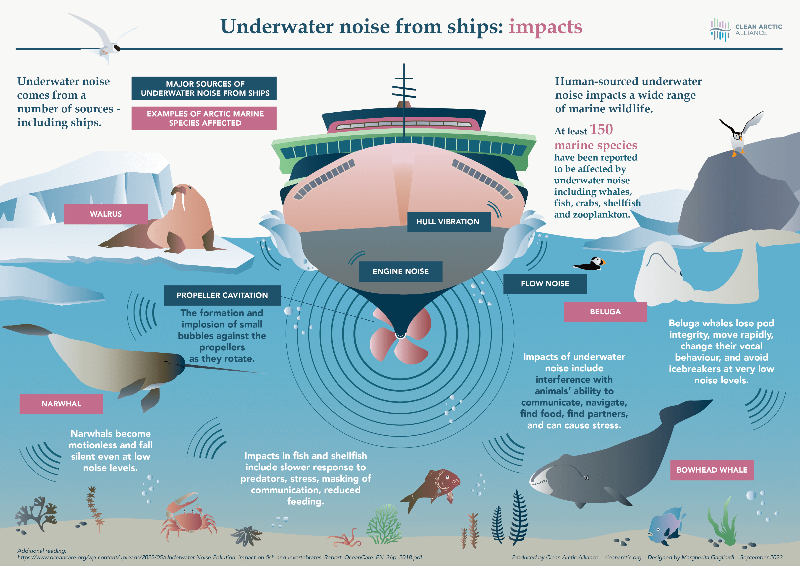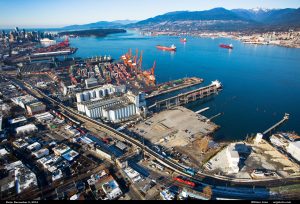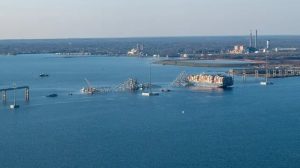As a two-day workshop exploring the relationship between energy efficiency and underwater radiated noise from shipping opened today at the International Maritime Organization (IMO) in London, the Clean Arctic Alliance and the Clean Shipping Coalition called for increased international action on decarbonizing the global shipping fleet.
“This IMO Workshop must identify and prioritize actions that will make ships quieter and reduce their climate impact”, said John Maggs, President of the Clean Shipping Coalition. “Earlier this year, IMO members adopted new targets to jump-start decarbonization of the global shipping fleet, including a commitment to cut ship climate emissions by 30% by 2030.”
Work should start immediately on “win-win” solutions like slower speeds and the use of modern wind power, Mr. Maggs said.
“The IMO has significant opportunities to reduce underwater noise by ensuring that ships are both quieter and more efficient – this can be achieved by better operation of vessels, retrofitting quieting technology, and designing quieter ships”, said Eelco Leemans, Technical Advisor to the Clean Arctic Alliance.
He added: “The most important source of continuous underwater noise in shipping is cavitation or the production of vacuum bubbles by propellers. The noise emitted by ships overlaps with the sound produced and used by marine mammals, making it hard for these animals to communicate, find food, and even navigate.
“Fish, invertebrates, and a variety of other marine species are also negatively impacted by ship-generated noise. The easiest short-term measure is for ships to slow down to reduce the cavitation effect, which not only results in – quieter and more efficient ships and lower greenhouse gas emissions, but it will also reduce the number of marine animals hit and killed by ships.”
“Wind propulsion and wind-assisted propulsion are also important for efforts aimed at increasing ship efficiency, reducing greenhouse gas emissions, and reducing noise, including on both large and small vessels. In fact, for some ship types they may be the best solution to address both issues”, Mr. Leemans said.
The IMO indicated that the Workshop on the Relationship between Energy Efficiency and Underwater Radiated Noise from Ships “seeks to engage participants who work in the greenhouse gas (GHG) and underwater radiated noise (URN) technical, regulatory and policy spaces, to include wide participation from industry with practical experience implementing both GHG/emissions reductions programs as well as those who are interested in or involved in reducing URN”.
(Image from Clean Arctic Alliance)





